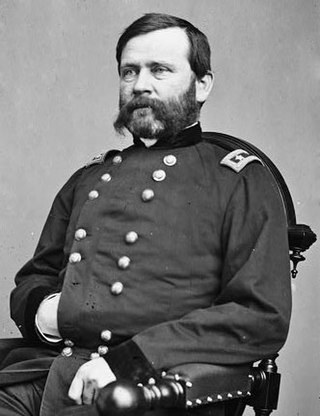
Manchester is a town in Hartford County, Connecticut, United States. The town is part of the Capitol Planning Region. As of the 2020 census, the town had a total population of 59,713. The urban center of the town is the Manchester census-designated place, with a population of 36,379 at the 2020 census. The town is named after Manchester, in England.

Oliver Wolcott Sr. was an American Founding Father and politician. He was a signer of the United States Declaration of Independence and the Articles of Confederation as a representative of Connecticut, and the nineteenth governor of Connecticut. Wolcott was a major general for the Connecticut militia in the Revolutionary War serving under George Washington.
The U.S. state of Connecticut began as three distinct settlements of Puritans from Massachusetts and England; they combined under a single royal charter in 1663. Known as the "land of steady habits" for its political, social and religious conservatism, the colony prospered from the trade and farming of its ethnic English Protestant population. The Congregational and Unitarian churches became prominent here. Connecticut played an active role in the American Revolution, and became a bastion of the conservative, business-oriented, Constitutionalism Federalist Party.
John Haynes, also sometimes spelled Haines, was a colonial magistrate and one of the founders of the Connecticut Colony. He served one term as governor of the Massachusetts Bay Colony and was the first governor of Connecticut, ultimately serving eight separate terms. Although Colonial Connecticut prohibited Governors from serving consecutive terms at the time, "John Haynes was so popular with the colonists that he served alternately as governor and often as deputy governor from 1639 to his death in 1653."

William Buel Franklin was a career United States Army officer and a Union Army general in the American Civil War. He rose to the rank of a corps commander in the Army of the Potomac, fighting in several notable battles in the Eastern Theater of the Civil War. He also distinguished himself as a civil engineer before and after the war.

Roger Ludlow (1590–1664) was an English lawyer, magistrate, military officer, and colonist. He was active in the founding of the Colony of Connecticut, and helped draft laws for it and the nearby Massachusetts Bay Colony. Under his and John Mason's direction, Boston's first fortification, later known as Castle William and then Fort Independence was built on Castle Island in Boston harbor. Frequently at odds with his peers, he eventually also founded Fairfield and Norwalk before leaving New England entirely.

The Merrow Sewing Machine Company, best known for inventing the overlock sewing machine, is a manufacturer of sewing machines. After the explosion of his gunpowder mill in 1837, in 1838 J.M. Merrow built a knitting mill on the same site. The company developed crocheting machines for its own use and by 1887 evolved to design, build and market sewing machines exclusively. During its early decades it was organized as a partnership under various names: established in 1838 as Joseph M. Merrow & Sons by J. Makens Merrow, then Pitkin, Merrow, & Co., renamed Merrow Manufacturing Co. in 1857, then Merrow and Millard in 1863, J.B. Merrow and Sons in 1870, and incorporated as The Merrow Manufacturing Company in 1893. Originally all of its manufacturing was done at facilities in Merrow, Connecticut, and then in Hartford, Connecticut, after 1894. The company is currently based in Fall River, Massachusetts.

Roger Wolcott was an American weaver, statesman, and politician from Windsor, Connecticut. He served as colonial governor of Connecticut from 1751 to 1754.

The Connecticut Military Department is a state agency of the government of Connecticut. Its primary components are the Connecticut Army National Guard, the Connecticut Air National Guard, and four companies of the state militia. The Military Department of the State of Connecticut traces its origins to May 11, 1637, when the "General Courts" established a military arm of the provincial government. In 1939, the State's Military Department was established to consolidate the offices of Adjutant General, Quartermaster General, Armory Board, and Armory Board Inspector.
David Hawley (1741–1807) was a captain in the Continental Navy and a privateer during the American Revolutionary War. He commanded Royal Savage in the 1776 Battle of Valcour Island, which is generally regarded as one of the first naval battles of the American Revolutionary War, and one of the first fought by the United States Navy.

Robert Hawley (1729–1799), Captain, raised provisions for the Continental soldiers and fought in the American Revolutionary War.

The Pitkin Glassworks Ruin is a historic industrial archaeological site at the junction of Parker and Putnam Streets in Manchester, Connecticut. It contains the remains of one of the oldest glass factories in New England, established in 1783. It was listed on the National Register of Historic Places in 1979.
William Phelps, was a Puritan who emigrated from Crewkerne, England in 1630, one of the founders of both Dorchester, Boston Massachusetts and Windsor, Connecticut, and one of eight selected to lead the first democratic town government in the American colonies in 1637. He was foreman of the first grand jury in New England, served most of his life in early colonial government, and according to noted historian Henry Reed Stiles, Phelps "was one of the most prominent and highly respected men in the colony."
William Pitkin was a colonial governor of the Connecticut Colony.

Peter Olcott was a Vermont public official and military officer who served as a brigadier general in the colonial militia, the sixth lieutenant governor of the Vermont Republic, and the first lieutenant governor of the state of Vermont.

Roger Enos was a colonial Vermont political and military leader during the American Revolution. In 1775, he took part in Benedict Arnold's expedition to Quebec, and he later commanded the Vermont Militia as a major general.

The Adjutant General of Connecticut is the highest-ranking military officer in the Armed Forces of the State of Connecticut which includes the Connecticut National Guard, the four units of the Governor's Guards, the Connecticut State Guard, the Connecticut State Guard Reserve and the Connecticut Naval Militia. The current Adjutant General is Major General Francis J. Evon, Jr. He was appointed to a four-year term effective July 1, 2018.
Justin Hodge, born in Roxbury, Massachusetts on April 21, 1815, was a Connecticut politician who served in the state legislature for many years. He represented his hometown of Barkhamstead as a loyal member of the Democratic Party. He served in the U.S. Army during the Civil War as well as the Mexican War before that. He briefly served as the Adjutant General of Connecticut in 1855.
William Porter Burrall was an American politician and railroad executive.
Joseph D. Williams, born in Lebanon, Connecticut in 1818, was an American general. He was the twelfth Adjutant General of the State of Connecticut. He was elected to the Connecticut State Legislature, and was appointed Adjutant General and Paymaster General in 1855. He was a member of the Connecticut Historical Society, Good Templars, and son of the American Revolution, and he was a Republican.












